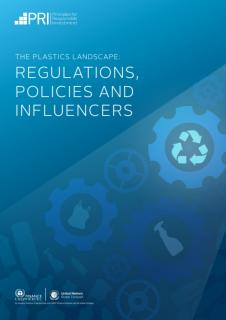
This report explores the various plastic-related regulations and policies at different stages of the value chain. It also looks at the types of movements that are influencing how plastic is regulated, managed and used. An overview of plastic legislation around the world is available here.
Key findings:
- Several countries, regions, and cities have recently introduced regulations and legislation focused on plastic. These are primarily aimed at use and disposal to reduce consumption and improve waste management. More than 60 countries have implemented bans and levies on plastic packaging and single-use waste.
- Although there are currently no policies or regulations that directly target the primary production of plastics, companies involved in producing raw materials for plastics (including oil and gas companies) may be affected indirectly through policies which aim to boost plastic recycling and reduce fossil fuel dependence and greenhouse gas (GHG) emissions.
- Policies and regulations focused on the disposal stage of the plastics value chain, such as China’s ban on imported waste, have significantly impacted global waste management systems and the secondary market. Shifting norms around plastic use are also being influenced by global civil society movements such as the BBC’s Blue Planet series and the Ellen MacArthur Foundation’s New Plastics Economy initiative.
